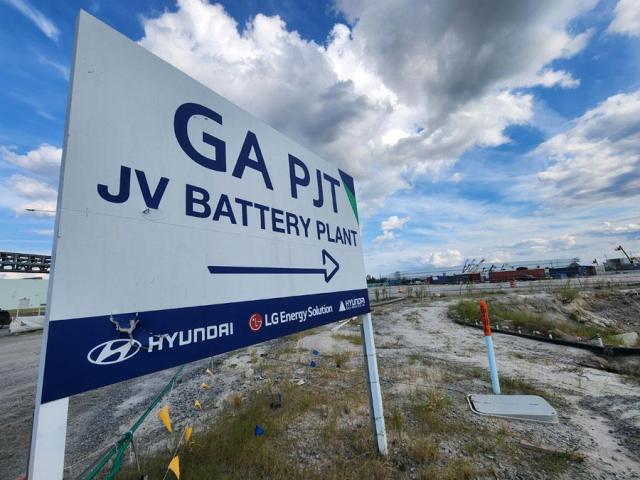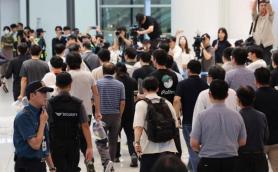
Local daily Savannah Morning News reported Wednesday that there are "a lot of discussions about getting them back," quoting Trip Tollison, president and CEO of the Savannah Economic Development Authority, an independent organization which works closely with the Georgia state government to promote regional economic growth.
Expressing the importance of retaining "sophisticate, talented South Koreans here installing battery equipment," Tollison said they are the "only ones who can install and teach future employees how to use the technology." He added, "The frustration, and I feel it too, is that there's no other entity in the world that has this proprietary technology that has to be installed by certain individuals. We are relying on South Korea."
But Tollison did not provide details on specific steps being taken. Moreover, it remains uncertain whether these "frightened" workers would want to return unless visa-related issues are fully resolved.
Some 316 South Koreans, mostly employees of Hyundai Motor Group and LG Energy Solution, fled back home last week after being caught on Sept. 4 in the largest single-site workplace raid in the history of the Department of Homeland Security. They had been working at a joint electric vehicle battery plant under construction in Folkston, a small town in southeast Georgia.
The raid occurred after immigration authorities alleged that they had been working at the site without valid work permits, having entered the U.S. under either the Electronic System for Travel Authorization (ESTA) or short-term B1 business visas.
Regarding the matter, Georgia Governor Brian Kemp earlier this week called for an overhaul of the U.S. visa system. "This is not just Hyundai's issue; many companies face similar challenges," he said, expressing concern that a similar incident could "deter" foreign investment in Georgia.
Chris Clark, president of the Georgia Chamber of Commerce, also spoke out on the matter. "What we've heard consistently is that we need to reform the visa program in America, whether it's for farm workers, whether it's for our workers," he said. "These are temporary workers who come here, they train up Americans, they bring unique expertise and knowledge to this state and we need a visa system that allows them to do their jobs."
Copyright ⓒ Aju Press All rights reserved.


